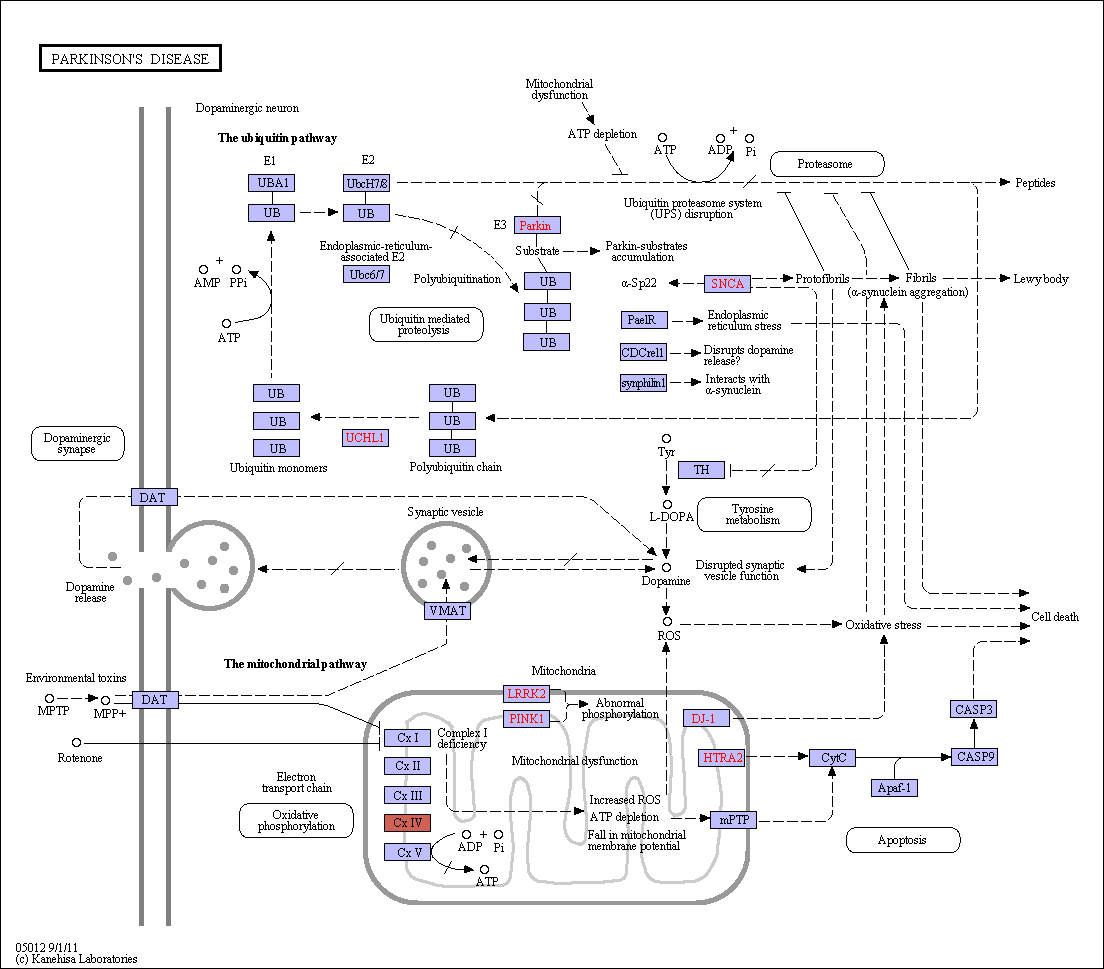|
Parkinson's disease (PD) is a progressive neurodegenerative movement disorder that results primarily from the death of dopaminergic neurons in the substantia nigra. Mutations in alpha-synuclein, UCHL1 (a ubiquitin carboxy-terminal hydrolase L1), parkin, DJ1 (a parkin-associated protein involved with oxidative stress), and PINK1 (a putative serine threonine kinase) are known to cause early-onset PD. These pathogenic mutations are associated with disease through pathogenic pathways that may commonly lead proteasome dysfunction, mitochondrial impairment, and oxidative stress. Point mutations in alpha-synuclein lead to excessive intracellular accumulation and protofibril formation. Decrease in the amount of soluble alpha-synuclein tends to increase free cytoplasmic dopamine and the formation of reactive oxygen species (ROS). Modification of parkin and UCHL1 are associated with the ubiquitin-proteasome system pathway and may increase proteotoxic stress. Mutations in parkin, DJ1, and PINK1 may alter mitochondiral activity, potentially impairing proteasomal function. Environmental toxins such as N-methyl-4-phenyl-1,2,3,6-tetrahydropyridine (MPTP) and rotenone can cause mitochondrial dysfunction and oxidative stress. |
 Parkinson's disease - Reference pathway (KO)
Parkinson's disease - Reference pathway (KO)

 Parkinson's disease - Reference pathway (KO)
Parkinson's disease - Reference pathway (KO)

